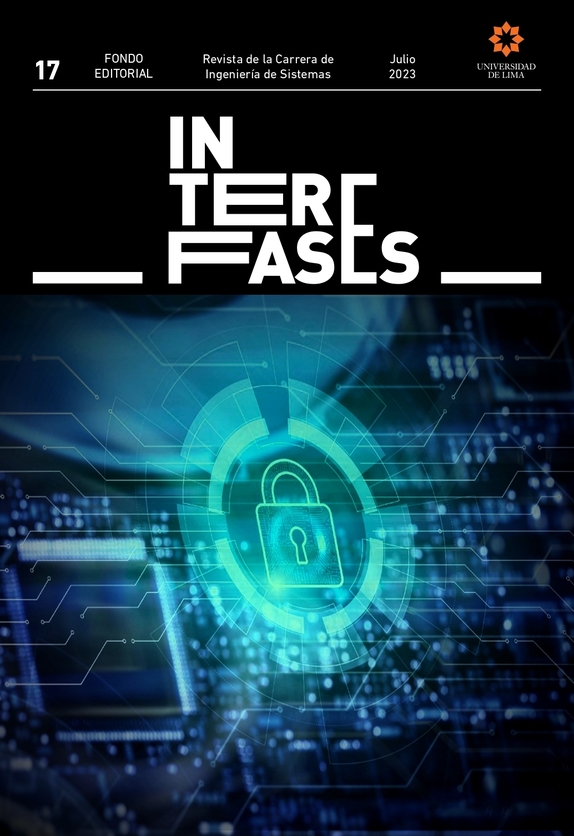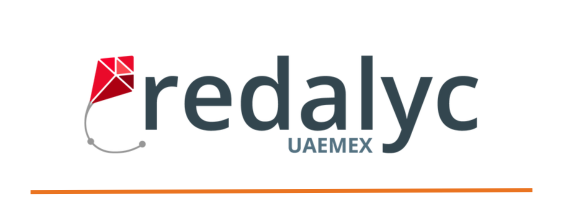Behavioral competencies, determining the existence of a gap between academia and the IT job market
DOI:
https://doi.org/10.26439/interfases2023.n017.6210Keywords:
behavioral competencies, soft skills, soft skills gapAbstract
In order to identify the relevant behavioral competencies for IT professionals and determine if there is a gap between the competencies developed by academia and those required by the job market in Costa Rica, this article analyses four stakeholder groups: literature, job boards, the graduation profiles of IT programs in public universities, and the directors and academic coordinators of these universities. The analysis identified 45 behavioral competencies, of which only three coincided in their categorization as having a high or moderate degree of importance. Notably, the analysis found no homogeneous competencies for all the investigated groups.
Downloads
References
Aasheim, C., Shropshire, J., Li, L., & Kadlec, C. (2012). Knowledge and skill requirements for entry-level IT workers: A longitudinal study. Journal of Information Systems Education, 23(2), 193-204.
Ahmed, F., Capretz, L. F., & Campbell, P. (2012). Evaluating the demand for soft skills in software development. IT Professional, 14(1), 44-49.
Anastasiu, L., Anastasiu, A., Dumitran, M., Crizboi, C., Holmaghi, A., & Roman, M. N. (2017). How to align the university curricula with the market demands by developing employability skills in the Civil Engineering sector. Education Sciences, 7(3), 74. https://doi.org/10.3390/educsci7030074
Balcar, J. (2016). Is it better to invest in hard or soft skills? The Economic and Labour Relations Review, 27(4), 453-470. https://doi.org/10.1177/1035304616674613
Bonesso, S., Gerli, F., Zampieri, R., & Boyatzis, R. E. (2020). Updating the debate on behavioral competency development: State of the art and future challenges. Frontiers in Psychology, 11, 1267. https://doi.org/10.3389/fpsyg.2020.01267
Chaibate, H., & Bakkali, S. (2017). Skills for employability: Identification of the soft skills required in engineering education. The Journal of Quality in Education, 7(9), 12. https://doi.org/10.37870/joqie.v7i9.5
Chaibate, H., Hadek, A., Ajana, S., Bakkali, S., & Faraj, K. (2020). A comparative study of the engineering soft skills required by Moroccan job market. International Journal of Higher Education, 9(1), 142-152. https://doi.org/10.5430/ijhe.v9n1p142
Dubey, R. S., Paul, J., & Tewari, V. (2021). The soft skills gap: A bottleneck in the talent supply
in emerging economies. The International Journal of Human Resource Management, 33(13), 2630-2661. https://doi.org/10.1080/09585192.2020.1871399
Dubey, R. S., & Tiwari, V. (2020). Operationalisation of soft skill attributes and determining the existing gap in novice ICT professionals. International Journal of Information Management, 50, 375-386. https://doi.org/10.1016/j.ijinfomgt.2019.09.006
Foro Económico Mundial. (2018, 2 de julio). 10 skills you’ll need to survive the rise of automation. https://www.weforum.org/agenda/2018/07/the-skills-needed-to-survive-the-robot-invasion-of-the-workplace/
Gruden, N., & Stare, A. (2018). The influence of behavioral competencies on project performance. Project Management Journal, 49(3), 98-109.
Gruzdev, M. V., Kuznetsova, I. V., Tarkhanova, I. Y., & Kazakova, E. I. (2018). University graduates’ soft skills: The employers’ opinion. European Journal of Contemporary Education, 7(4), 690-698.
Hazzan, O., & Har-Shai, G. (2013). Teaching computer science soft skills as soft concepts. En Proceeding of the 44th ACM Technical Symposium on Computer Science Education (pp. 59-64). https://doi.org/10.1145/2445196.2445219
Le Lous, F. (2019, 28 de agosto). Bolsas de empleo: todo lo que debe saber para sacarles provecho. La Nación. https://www.nacion.com/soluciones-ln/bolsas-de-empleo-todo-lo-que-debes-saberpara/4WLJZUZZ7ZGZHA4LDGZIXXHUK4/story/
Lee, S., Koh, S., Yen, D., & Tang, H.-L. (2002). Perception gaps between IS academics and IS practitioners: An exploratory study. Information & Management, 40(1), 51-61. https://doi.org/10.1016/S0378-7206(01)00132-X
Majid, S., Eapen, C. M., Aung, E. M., & Oo, K. T. (2019). The importance of soft skills for employability and career development: Students and employers’ perspectives. IUP Journal of Soft Skills, 13(4), 7-39.
Montandon, J. E., Politowski, C., Silva, L. L., Valente, M. T., Petrillo, F., & Guéhéneuc, Y.-G. (2021). What skills do IT companies look for in new developers? A study with Stack Overflow Jobs. Information and Software Technology, 129, 106429.
Nahod, M.-M., & Radujković, M. V. M. (2013). The impact of ICB 3.0 competences on project
management success. Procedia - Social and Behavioral Sciences, 74, 244-254. https://doi.org/10.1016/j.sbspro.2013.03.014
Perrenoud, P. (1997). Construire des compétences dès l’école: Practiques et enjeux pedagogiques. ESF éditeur.
Pinkowska, M., Lent, B., & Keretho, S. (2011). Process based identification of software project manager soft skills. En 2011 Eighth International Joint Conference on Computer Science and Software Engineering (JCSSE) (pp. 343-348). IEEE. https://doi.org/10.1109/JCSSE.2011.5930145
Pizarro-Aguilar, M. (2021). ¿Cómo propiciar las habilidades no técnicas en carreras de ingeniería? Enfoques para la investigación. Revista Electrónica Calidad en la Educación Superior, 12(1), 272-291. http://dx.doi.org/10.22458/caes.v12i1.3409
Ritter, B. A., Small, E. E., Mortimer, J. W., & Doll, J. L. (2018). Designing management curriculum for workplace readiness: Developing students’ soft skills. Journal of Management Education, 42(1), 80-103. https://doi.org/10.1177/1052562917703679
Robles, M. M. (2012). Executive perceptions of the top 10 soft skills needed in today’s workplace. Business Communication Quarterly, 75(4), 453-465. https://doi.org/10-1177/1080569912460400
Sharma, M. (2009). How important are soft skills from the recruiter’s perspective. ICFAI Journal of Soft Skills, 3(2), 19-28.
Sharma, V. (2018). Soft skills: An employability enabler. IUP Journal of Soft Skills, 12(2), 25-32.
Todd, P. A., McKeen, J. D., & Gallupe, R. B. (1995). The evolution of IS job skills: A content analysis of IS job advertisements from 1970 to 1990. MIS quarterly, 19(1), 1-27.
Touloumakos, A. K. (2020). Expanded yet restricted: A mini review of the soft skills literature. Frontiers in Psychology, 11, 2207.
Verma, A., & Bedi, M. (2008). Importance of soft skills in IT industry. ICFAI Journal of Soft Skills, 2(4), 15-24.
Wacker, J. G. (2004). A theory of formal conceptual definitions: Developing theory-building
measurement instruments. Journal of Operations Management, 22(6), 629-650. https://doi.org/10.1016/j.jom.2004.08.002
Yen, D. C., Lee, S., & Koh, S. (2001). Critical knowledge/skill sets required by industries: An empirical analysis. Industrial Management & Data Systems, 101(8), 432-442. https://doi.org/10.1108/EUM0000000006173
Downloads
Published
Issue
Section
License
Authors who publish with this journal agree to the following terms:
Authors retain copyright and grant the journal right of first publication with the work simultaneously licensed under an Attribution 4.0 International (CC BY 4.0) License. that allows others to share the work with an acknowledgement of the work's authorship and initial publication in this journal.
Authors are able to enter into separate, additional contractual arrangements for the non-exclusive distribution of the journal's published version of the work (e.g., post it to an institutional repository or publish it in a book), with an acknowledgement of its initial publication in this journal.
Authors are permitted and encouraged to post their work online (e.g., in institutional repositories or on their website) prior to and during the submission process, as it can lead to productive exchanges, as well as earlier and greater citation of published work (See The Effect of Open Access).
Last updated 03/05/21






